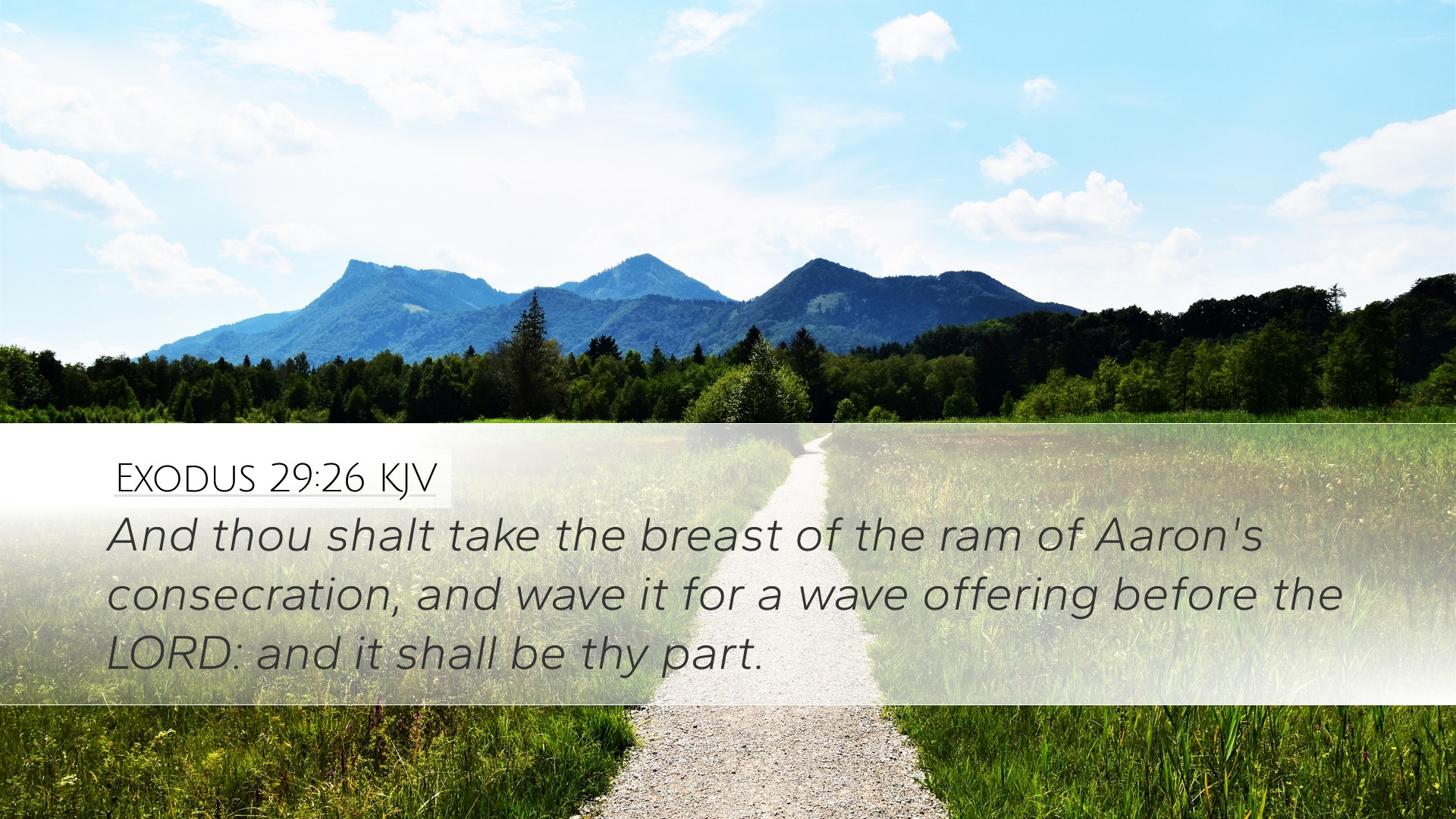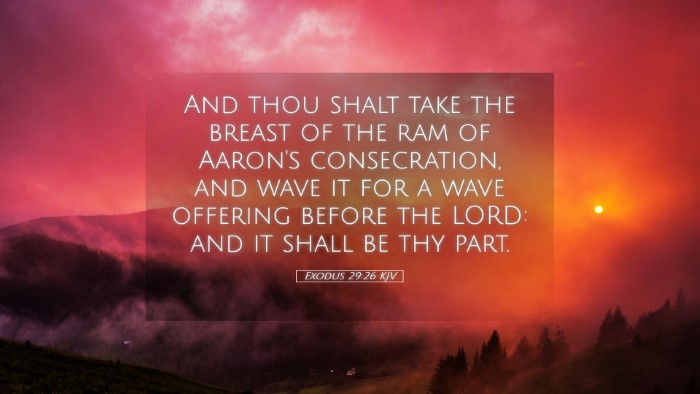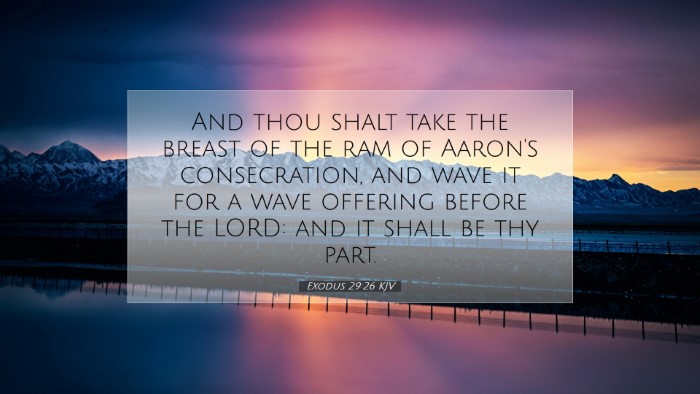Exodus 29:26 Commentary
Verse Reference: Exodus 29:26 - "And thou shalt take the breast of the ram of consecration, and wave it for a wave offering before the LORD: and it shall be thy part."
Introduction
This verse is a part of the consecration service for Aaron and his sons, marking their official introduction as priests. The specifics of the offerings serve as a rich theological backdrop that highlights the role of the priesthood in Israel. The provisions for both the priests and the sanctuary connect deeply with themes of divine service, holiness, and covenant relationship.
The Significance of the Wave Offering
The act of waving the breast of the ram represents the acknowledgment of God’s ownership over the offering and the priest's duties. Matthew Henry notes that this ceremonial act symbolizes the presentation of the gift to God while also affirming the people’s relationship with Him through the priesthood.
Symbolism Explored
- Recognition of God's Provision: The breast, often considered a place of nurturing, signifies God's provision and the priest's role as a mediator between God and the people.
- Consecration and Service: The act of waving is not simply performative; it represents a spiritual reality where the priest is set apart for holy service.
Insights from Notable Commentators
- Matthew Henry: Henry elaborates on the holiness and reverence that must accompany the offerings. He emphasizes that every aspect of the sacrifice, including the wave offering, must reflect a heart devoted to God and His service.
- Albert Barnes: Barnes points out that the breast is given as part of the priests’ share in the sacrificial system. This allocation serves not only physical sustenance but symbolizes spiritual nourishment derived from their unique position before God.
- Adam Clarke: Clarke sees the importance of the wave offering in reinforcing the communal aspects of worship. It was not merely about individual piety; it constituted a significant act in the community’s collective relationship with God.
Broader Theological Implications
The command to wave the breast of the ram captures important theological themes regarding sacrifice, atonement, and the role of leaders within the worshiping community. This action signifies that the offerings made to God are acceptable and consecrated for divine use, underscoring a reciprocal relationship between God and humanity.
The Priesthood as Intercessors
Pastoral roles in the New Testament context can draw parallels to this Old Testament practice. Just as the priest received parts of the sacrifice, leaders today are called to guide their congregations, serve them sacrificially, and intercede on their behalf.
Application for Pastors and Theologians
For modern-day pastors and theologians, Exodus 29:26 provides profound insights into sacrificial stewardship and the sacred responsibilities of ministry. Understanding the historical and spiritual nuances of this scripture can enhance one’s approach to teaching, worship, and community leadership.
Practical Considerations
- Emphasizing Divine Holiness: Each act of service must retain a sense of reverence and recognition of God’s holiness.
- Modeling Sacrificial Leadership: Just as the priests received from the offerings, contemporary spiritual leaders should offer their lives sacrificially for the sake of their communities.


